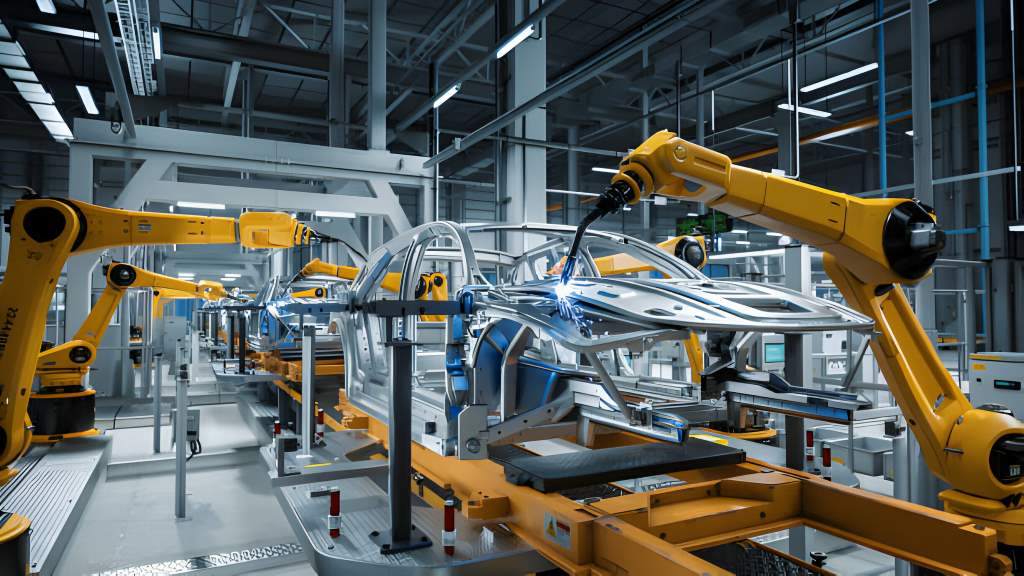
Accelerating Convenience: The Role of Technology in Enhancing Car Interior Accessories Stores
In the era of rapid technological advancements, every industry is witnessing transformative changes, and the automotive sector is no exception.
Car interior accessories stores, traditionally known for their physical presence, are now leveraging technology to enhance convenience for customers.
This blog explores the innovative ways in which technology is revolutionizing the car interior accessories retail sector, making shopping experiences more seamless and personalized.
-
Virtual Reality (VR) Showrooms:
- Immersive Experience: VR technology allows customers to virtually explore car interior accessories showrooms from the comfort of their homes.
- Product Visualization: Shoppers can visualize how accessories would look in their vehicles through immersive VR experiences, aiding in better decision-making.
- Increased Engagement: VR showrooms offer an interactive platform where customers can engage with products and receive real-time assistance from sales representatives.
-
Augmented Reality (AR) Try-Ons:
- Enhanced Product Trials: AR technology enables customers to virtually try on car interior accessories such as seat covers, steering wheel covers, and floor mats.
- Customization Options: Shoppers can customize accessories in real-time, experimenting with different colors, patterns, and styles to match their preferences.
- Reduced Returns: AR try-ons help minimize the risk of purchasing unsuitable accessories, leading to decreased return rates and increased customer satisfaction.

-
AI-Powered Recommendation Systems:
- Personalized Suggestions: Utilizing AI algorithms, car interior accessories stores can analyze customer preferences and purchase history to offer personalized product recommendations.
- Enhanced Shopping Experience: AI-powered recommendation systems streamline the shopping process by presenting relevant accessories tailored to individual needs, saving time and effort for customers.
- Predictive Analytics: By leveraging data analytics, retailers can anticipate future trends and stock inventory accordingly, ensuring they meet customer demands effectively.
-
Mobile Applications for Seamless Shopping:
- Convenient Access: Mobile apps provide customers with instant access to car interior accessories stores, allowing them to browse and purchase products anytime, anywhere.
- Exclusive Offers: Retailers can send personalized offers and promotions to app users, fostering customer loyalty and driving sales.
- Order Tracking: Mobile apps enable customers to track their orders in real-time, providing transparency and peace of mind throughout the purchasing process.
-
Social Media Integration for Community Engagement:
- Building Brand Awareness: Car interior accessories stores can leverage social media platforms to showcase their products, share user-generated content, and engage with customers in meaningful conversations.
- Influencer Collaborations: Partnering with automotive enthusiasts and influencers on social media allows stores to reach a wider audience and gain credibility through authentic endorsements.
- User Reviews and Recommendations: Social media platforms provide a space for customers to share their experiences, reviews, and recommendations, influencing the purchasing decisions of their peers and fostering a sense of community within the automotive enthusiast sphere.

-
Interactive Digital Displays:
- Engaging Visuals: Interactive digital displays showcase car interior accessories in a visually appealing manner, capturing customers’ attention and stimulating interest.
- Product Information: Customers can access detailed information about accessories, including features, specifications, and pricing, directly from digital displays.
- Feedback Mechanism: Interactive displays can incorporate feedback mechanisms, allowing customers to provide insights and suggestions for improvement, thereby enhancing the overall shopping experience.
-
RFID Technology for Inventory Management:
- Efficient Stock Tracking: RFID technology enables real-time tracking of inventory, ensuring accurate stock levels and minimizing instances of overstocking or stockouts.
- Inventory Optimization: By efficiently managing inventory, retailers can optimize their supply chain processes, reduce costs, and enhance operational efficiency.
- Improved Customer Service: With RFID-enabled inventory management systems, retailers can quickly locate products, fulfill orders promptly, and provide better assistance to customers, thereby enhancing satisfaction levels.
-
3D Printing for Customization and Prototyping:
- Tailored Solutions: 3D printing technology enables car interior accessories stores to offer customized solutions, allowing customers to design and create accessories that meet their specific requirements.
- Rapid Prototyping: By utilizing 3D printing for prototyping, stores can accelerate the product development process, iterate designs quickly, and bring new accessories to market faster.
- On-Demand Manufacturing: 3D printing facilitates on-demand manufacturing, reducing inventory overheads and enabling stores to offer a wider range of accessories without the need for large-scale production runs.
-
Subscription Services for Accessory Updates:
- Continuous Access to Latest Accessories: Subscription-based models allow customers to receive regular updates and access to the latest car interior accessories, ensuring they stay up-to-date with trends and innovations.
- Convenience and Flexibility: Subscribers benefit from the convenience of receiving curated accessory packages delivered to their doorstep regularly, eliminating the need for frequent store visits.
- Personalized Recommendations: By analyzing subscriber preferences and feedback, stores can tailor accessory packages to individual tastes, enhancing the overall subscription experience and increasing customer satisfaction.

Conclusion
Technology continues to play a pivotal role in reshaping the landscape of car interior accessories stores, offering innovative solutions to enhance convenience, personalization, and efficiency.
From virtual showrooms to AI-driven recommendation systems, these technological advancements not only streamline the shopping experience but also pave the way for a more connected and digitally-driven future in automotive retail.
As consumers increasingly embrace digital channels, leveraging technology will be essential for car interior accessories stores to stay ahead of the curve and meet the evolving needs of modern shoppers.